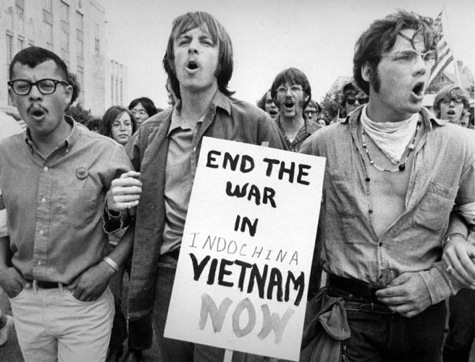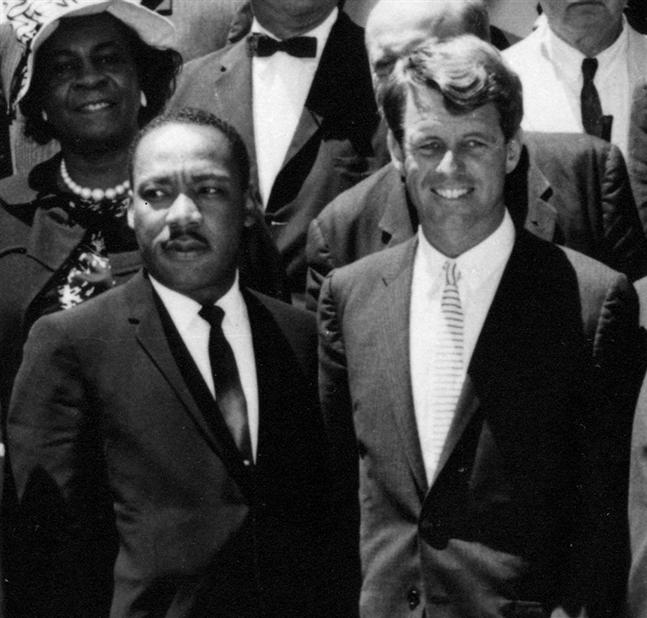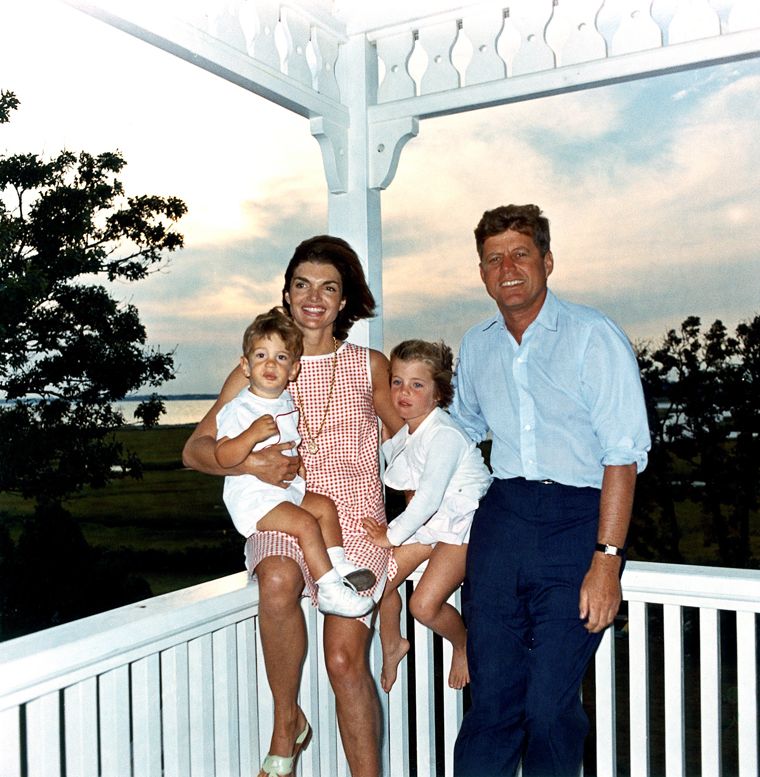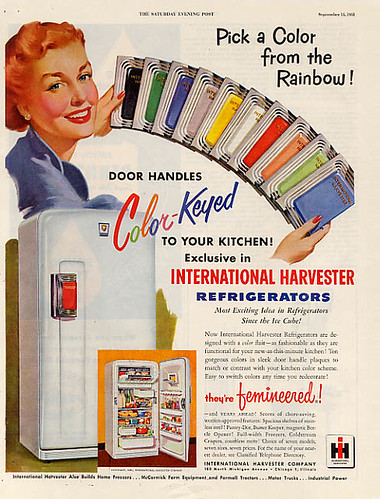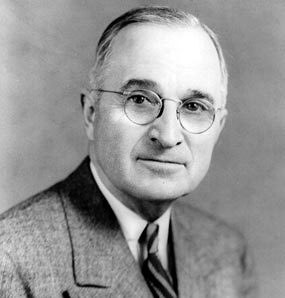 Who is Truman?
Who is Truman?
Harru S. Truman a senator from Missouri, who was well known for being honorable and confident. As the 33rd president of the United States, he maintained the presidency from 1945-1953 as a democrat. His presidency came as a sudden shock when in 1945, current president Franklin D Roosevelt died of a stroke. As FDR's vice president, Truman took the reigns of presidency and inherited the duties and problems of World War II.
What Did He Do?
By the time of Truman's ascension, Germany and Italy had already surrendered to the Allies, leaving Japan the only enemies to the U.S. in the war. The Japenese had been removed from all the pacific islands, and it seemed the only way to end the war was to invade Japan itself. However, this was a strategdy Truman did not want to follow. He instead decided to use the revently developed atomic bombs to attack the major Japenese cities of Hiroshima and Nagasaki. This decision lead the Empeoror of Japan to surrender and ultimately end the World War.
Besides ending the greatest war since the first World War, Truman faced the task of revitilizing the post war economy. Due to high prices and low wages (because the lack of war demand) over 4 million workers went on strike. Truman threatened to draft the workers and sieze control of all of the opposing industries, which lead the unions to bitterly give in. At the time, this angered many citizens, causing them to lose trust in Truman and eventually sway to voters to elect republican senators in 1946.
Risking an even lower drop in popularity, Truman selflessly supported the Civil Rights Movement in 1946. He openly expressed his support by addressing equality for all human beings in many of his speeches and creating a President's Commision on Civil Rights. Through the commision, Truman began asking Congress to create a federal antilynching law, ban on poll taxes, and a permanent civil rights commision. The now Republican heavy Congress did not share his ideals and refused to pass many of the bills. As a result, he began executive orders in 1948, to begin integration as protected by armed forces
By the time of 1948 election, the rising inflation and Truman's focus on civil rights lead the a group of right wing Southern "Dixiecrats" to form the States' Rights Democratic Party and nominate candidate. At the same time, a more liberal Democrat group, the Progressive Party, also rose and was headed by former VP Henry A. Wallace. This division gave the Republican candidate, New York Governor Dewey a big lead. However, Truman was prepared. He challenged the Republican dominated congress to pass a record number of reform bills (from federal education aid to extended Social security), which, as he expected , failed to pass. Then, he was able to campaign under the denouncement of a "do-nothing" congress. This tricky move not only gave Truman an extremely close win but returned Congress to the democrats. However, it permanently turned many Southern states, traditionally Democrat, into republican strongholds.
During his second term, Truman proposed a series of economic programs called the Fair Deal, a reference to FDR's own New Deal. It included plans for health insurance and crop subsidies, but nearly everyone in congress rejected the measures. However, he did manage to have the minimum wage practically doubled-- 40 cents to 75. He extended Social Security to millions more and began many flood and irrigation projects.
Truman sets the Stage
Perhaps the most important parts of Truman's presidency were the decisions he made toward the Cold War; his choices shaped US actions for decades to come.
At the Potsdam conference in July 1945, Truman met with Clement Attlee, Britain's prime minister, and the Soviet dictator, Joseph Stalin. There, he learned both of Stalin's refusal to keep free elections in post-war, Soviet occupied regions, as well as the plan to take massive reparations from its sections of Germany. When Truman attempted to push to renewal of trade to Eastern Europe, the USSR increased its barriers against the west, setting up a series of easily dominated satellite nations.
In response, Truman and the American diplomat to Moscow, George Kennan, began a policy of containment, the policy of preventing extension of communist rule. This was later exemplified in the Truman Doctrine, in which America provided economic and military aid to support free peoples resisted outside pressures. Specifically, the aid to Western Europe was called the Marshall plan; through $13 billion in aid, Western Europe was easily brought over to the side of America and Britain.
Further conflicts during the early cold war were handled by Truman. He helped oversee the Berlin Airlift, the flight of supplies to a USSR-blockaded Berlin, which boosted the American reputation. NATO (the North Atlantic Treaty Organization) created a set of allies in Western Europe against the USSR (which formed its own alliance, the Warsaw pact, with its satellites).
One of the last (and most flawed) actions of the Truman presidency was the Korean War. Following the fall of the corrupt but US supported China to communist leader Mao Zedong (during which fight Truman refused military aid), America become committed to keeping communism out of South Korea. North Korea, as influenced by its northern neighbor, was communist, and its leaders wanted to unite the two nations under communism. The US, originally more removed from the region in post-World war times, petitioned to the UN security council, and troops were sent from the UN to bolster the Souther Korean fight. Despite the work of General MacArthur, the famous Pacific War general, the later entrance of the Chinese to the war lead to an eventual stalemate across the original boundary, the 38th parallel. When MacArthur recommend attacking China with nuclear weapons, Truman fired the hero, causing another plummet in his popularity. 54,000 American casualties and $67 billion later, Korea was still two nations.
After Truman
In 1952, the next election year, America chose the first republican president in 20 years, Dwight D. Eisenhower. Leaving the Presidency, Truman may have had abysmal approval ratings, but today, we can see that he was on of the most influential Presidents in our history.






